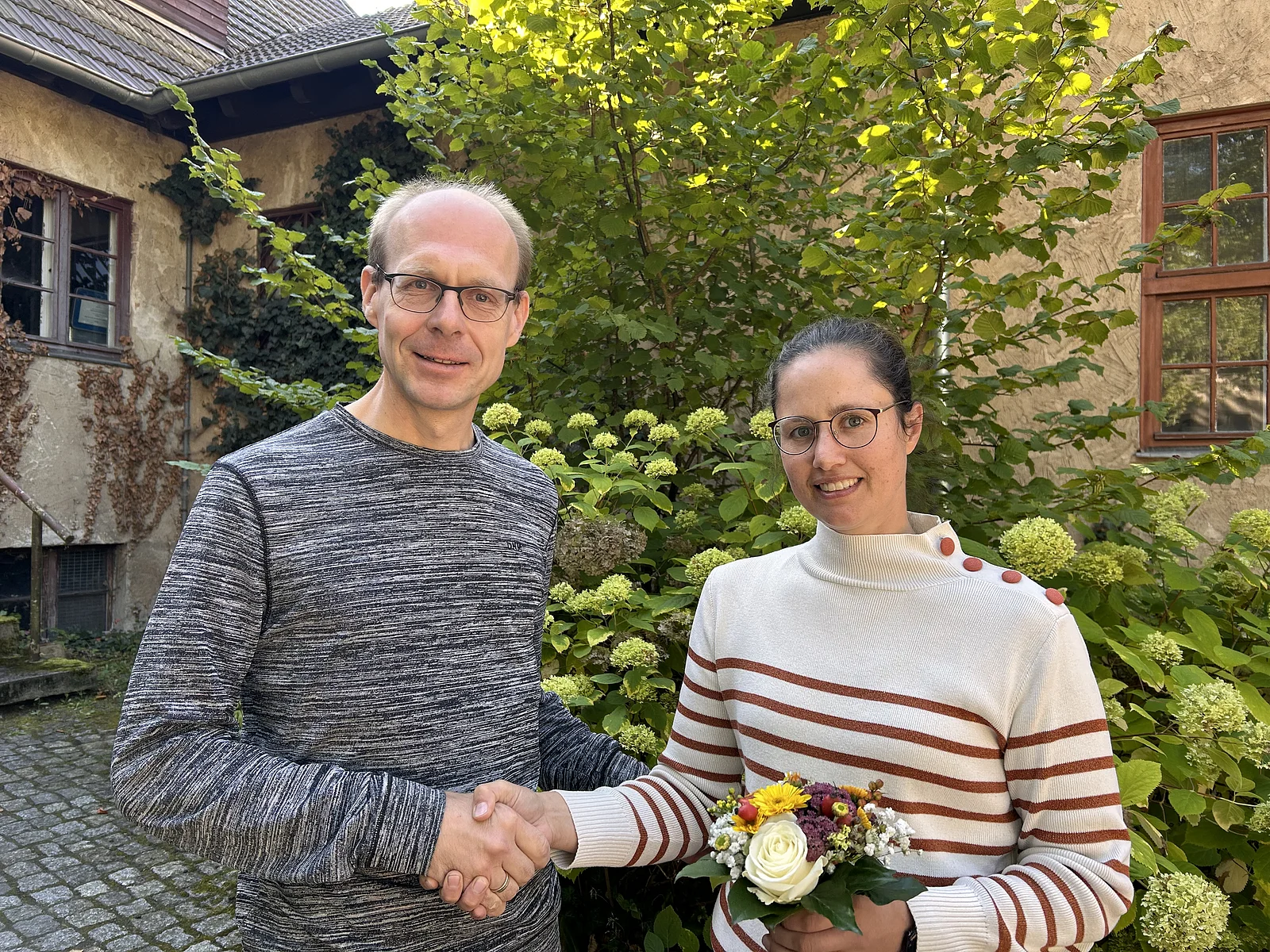Change in the Vice-Presidency for Research and Transfer - Prof Dr Eva-Maria Saliu succeeds Prof Dr Alexander Pfriem
As of 1 October 2025, Professor Eva-Maria Saliu has taken up the role of Vice President for Research and Transfer at the Eberswalde University for Sustainable Development (HNEE). She succeeds Professor Alexander Pfriem, who, after twelve successful years at HNEE, has accepted a professorship in Wood Technology and Fibre-Based Materials Engineering at TU Dresden.

During his time at HNEE, Professor Pfriem played a pivotal role in shaping the university into one of the strongest research universities of applied sciences in Germany. In recognition of his outstanding scientific achievements, he was named one of the “100 Heads of Science” in Berlin and Brandenburg by Tagesspiegel in 2025 – a tribute to his contributions to sustainable development, the establishment of robust research structures, and his long-standing commitment to supporting early-career researchers.
With the appointment of Prof. Dr Eva-Maria Saliu, HNEE is building on this strong foundation. The university aims to further strengthen its research capacity, expand its Research and Transfer activities, and generate new momentum for collaboration across disciplines, within the institution, and with external partners. In the following interview, Professor Saliu shares her motivation, experience, and vision for the years ahead.
"Research is my passion - and transfer is the natural next step"
An interview with Professor Eva-Maria Saliu, new Vice President for Research and Transfer
What motivated you to take on the role of Vice President for Research and Transfer at HNEE?
Research has always been a deep passion of mine – and transfer is the natural next step, ensuring that the insights we generate can be applied in practice. Research can be particularly challenging for early-career researchers, and to improve conditions, we need space to create meaningful structures. This position gives me that opportunity. I took it on with the understanding that I could continue my own research and teaching, which is important to me in order to stay connected to students and practical application.
What experience do you bring to the role?
I studied veterinary medicine at the Freie Universität Berlin, where I also completed my doctorate. During my doctorate, I participated in a structured doctoral programme that placed a strong emphasis on developing leadership and management skills – including through the ProFiL programme of the Berlin University Alliance and several executive courses for academic leaders. I’ve also been actively engaged in higher education policy and academic committees for many years.
What priorities will you focus on over the coming years?
My focus will be on strengthening research infrastructure, supporting early-career researchers, and encouraging greater participation. I want to continue the successful work of Professor Pfriem while bringing in new perspectives. At HNEE, we see research as a collaborative, interdisciplinary and sustainability-driven process – and I intend to help shape it in that spirit.
How do you plan to further develop HNEE’s role as a driver of sustainable development?
HNEE is recognised for something many universities aspire to: a strong guiding mission and a clear commitment to sustainability. Through institutions like the INES Institute and the Regional Office Schwedt | Uckermark, we are firmly embedded in the region. The new doctoral college for Brandenburg’s universities offers an exciting opportunity for us to actively help shape the research landscape in the state – that’s a real milestone.
How would you like to strengthen collaboration across the university and beyond?
We want to promote exchange and collaboration in a targeted and inclusive way – through needs-based formats such as peer cafés, working groups on specific themes, and open forums for idea sharing. In teaching, I’d like to see even stronger links between research and learning, so that students can engage with research early in their studies and grow into academic practice.
Is there a message you’d like to share as you begin your new role?
I’m looking forward to open, constructive dialogue and warmly invite everyone to contribute their ideas and suggestions. Research thrives on collaboration and mutual inspiration.
Prof.in Saliu is thus continuing the successful development of recent years while also opening new directions.
Since 2013, Professor Alexander Pfriem has shaped the development of Research and Transfer at HNEE with strategic foresight and unwavering dedication. A central focus of his work was supporting early-career researchers. As co-initiator of the 2024 reform that granted universities of applied sciences in Brandenburg the right to award doctorates, he played a key role in establishing the new doctoral college. The graduate programme he initiated in cooperation with Leuphana University Lüneburg is seen as a model for successful research training and support.
Professor Pfriem’s research in wood technology, materials science and chemical process engineering is internationally recognised. He led more than 20 externally funded research projects and numerous practical innovations – including sustainable timber-based materials and the “Woy 26”, a vessel nominated for the 2026 European Yacht of the Year Award – highlighting his ability to translate research into real-world solutions.
Under Professor Saliu’s leadership, HNEE will continue to strengthen its Research and Transfer activities – with a clear focus on sustainability and the pressing challenges of our time.